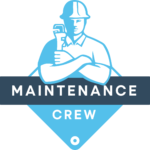A literature review was undertaken using several electronic databases (PubMed, Cochrane Database of systemic reviews and specific journals, which pertain to psychosocial issues in addictive disorders and guidelines on this topic). The evidence base cited consists of findings from either individual studies or meta-analyses of studies that largely were randomized controlled trials (RCT) in which individuals exposed to these psychosocial interventions had significantly better substance use outcomes either at the end of the treatment phase or at follow-up. Consensus exists that several psychosocial treatments or interventions for substance use disorders are “evidence-based.” These include cognitive-behavioral therapy (CBT) (including relapse prevention (RP)), contingency management (CM), motivational enhancement/motivational interviewing (MI) and brief interventions (BIs) for alcohol and tobacco.
Contingency Management and Behavior
AddictionResource aims to present the most accurate, trustworthy, and up-to-date medical content to our readers. Our team does their best for our readers to help them stay informed about vital healthcare decisions. If you or anyone you know is undergoing a severe health crisis, call a doctor or 911 immediately. Addiction Resource team has compiled an extensive list of the top drug rehabilitation facilities around the country. Click on the state you are interested in, and you’ll get a list of the best centers in the area, along with their levels of care, working hours, and contact information.
- To conclude, the use of therapeutic communities for treatment of substance use disorders does not have a strong evidence base.
- We’ve tried, tested, and written unbiased reviews of the best online therapy programs including Talkspace, BetterHelp, and ReGain.
- Despite the richness of its theoretical foundations, the literature thus far has not provided a clear picture of how CBT exerts its effects on AOD outcomes.
- In the brief behavioral model designed by Phillipsand Weiner, techniques such as programmed therapy and writing therapy(see Figure 4-6) make whatis typically thought of as “homework” the central concern of the therapysession (Phillips and Weiner,1966).
- Although other forms of therapy can be long term and are not time limited, CBT is usually completed in 12 to 16 sessions with the therapist.
How Much Does Cognitive Behavioral Therapy Cost?
In the absence of these skills, such problems areviewed as threatening, stressful, and potentially unsolvable. Based onthe individual’s observation of both family members’ and peers’responses to similar situations and from their own initial experimentaluse of alcohol or drugs, the individual uses substances as a means oftrying to deal with these problems and the emotional reactions theycreate. From this perspective, substance abuse is viewed as a learnedbehavior having functional utility for the individual–the individualuses substances in response to problematic situations as an attempt tocope in the absence of more appropriate https://ecosoberhouse.com/ behavioral, cognitive, andemotional coping skills. Near the end of the initial session the therapist reviews with the clientthe procedure for filling out the self-monitoring records. In addition,the therapist might provide the client with self-help manuals thatoutline the specific steps in the behavioral self-control process.Self-monitoring of substance abuse behavior is one form of writtenhomework common in behavioral approaches; other types of homework mightalso be used. Homework assignments can include such things as keeping ajournal of behaviors, activities, and feelings when using substances orat risk of doing so.
Alcohol use disorders
First, our primary goal was to derive valid, random-effects estimates characterized by effect modifiers. In other words, the goal was to avoid combining apples and oranges,76 which is a common criticism against meta-analysis. Although we consider our subgroup approach a strength, some effect size estimates were composed of a small number of primary studies, and this may result in underpowered analyses. Second, there may be some concern about fidelity and other sources of variability in what constituted this sample of CBT interventions, given that a range of manual implementations were reviewed. Unfortunately, fidelity to behavioral intervention protocol is often poorly reported in the clinical trial literature77 and could not be consistently measured for the present study.

A Case Study Using CBT

Forsubstance abuse disorders, these goals will, of course, involve areduction in or cessation of substance use. In addition to targetingsubstance abuse as the primary focus, other goals will be developed toassist cbt interventions for substance abuse the client in improving daily functioning (e.g., by reducingstress, as described in Figure4-5). The focus of the therapy might be tonegotiate with the client to accomplish these other goals by reducinguse.
Types of Therapy: An A to Z List of Your Options – Verywell Mind
Types of Therapy: An A to Z List of Your Options.
Posted: Tue, 21 Nov 2023 08:00:00 GMT [source]
